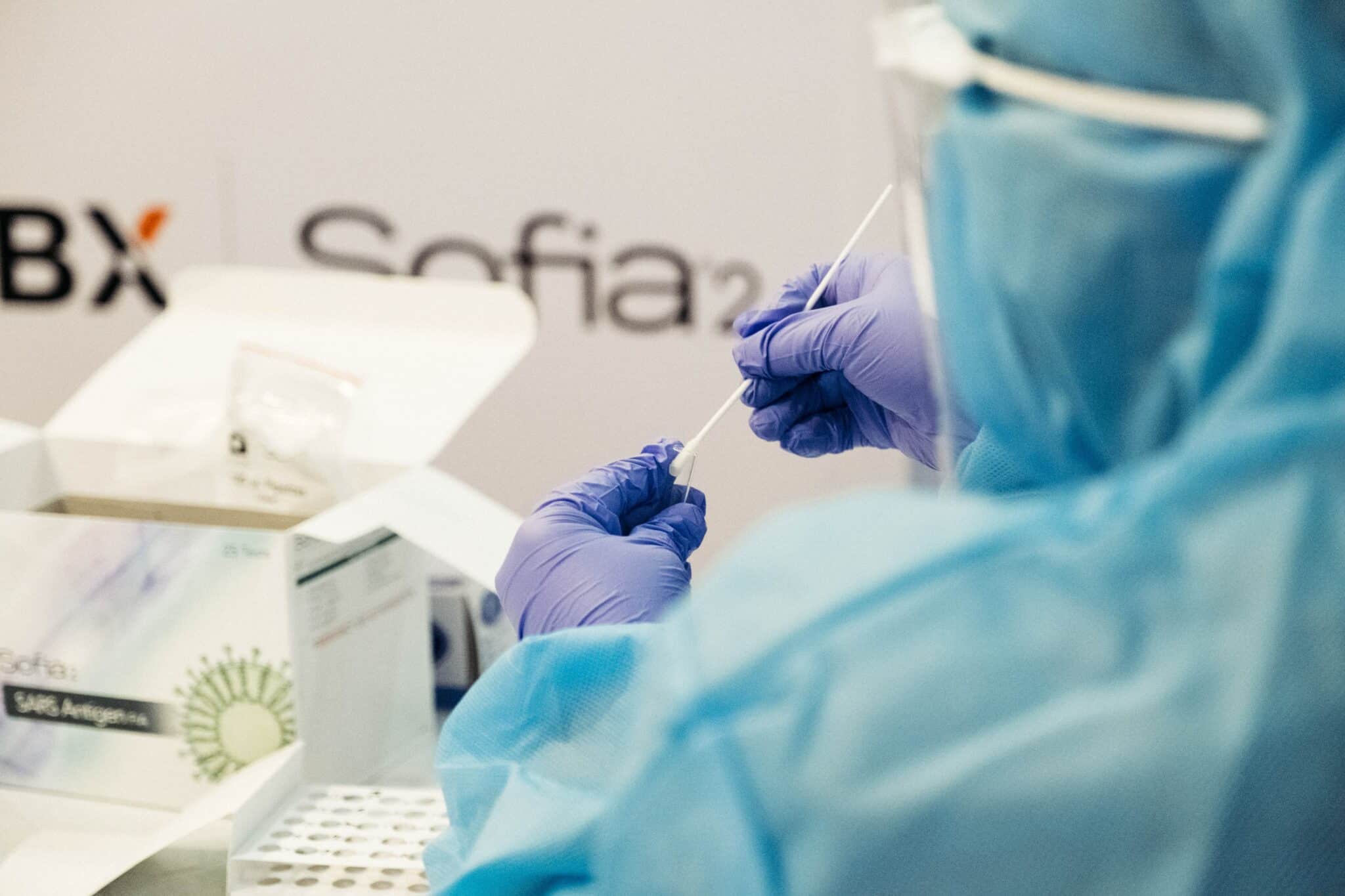How To Prevent Monkeypox: A Guide for Travelers

It looks like the Covid-19 pandemic is finally coming to an end. However, a new disease is emerging: Monkeypox. In the last couple of months, Monkeypox became a concern in many parts of the world, but especially in Europe.
If you’ve been stressing about monkeypox and what it may imply for your future trips, then this post is for you. Today, we’ll share a quick overview of what Monkeypox is and discuss some common questions, including:
- How does monkeypox spread?
- Who is at greater risk of getting infected?
- How is it treated?
- Can it evolve?
- Could Monkeypox be a new pandemic?
- How will it affect traveling or summer festivals?
- What’s the current worldwide situation?
We’ll also cover how to prevent Monkeypox, both while traveling and at home.
Let’s jump in!
Brief Recap: What Is Monkeypox?
Monkeypox is really similar to Smallpox. Generally, this virus can be found among primates and rodents, but it can also spread to humans. It’s commonly found in Central and Western Africa, but it has recently been detected in non-endemic areas, such as Europe and North America.
Common symptoms include:
- Evolving a rash that develops from vesicles into blisters
- Fever
- Exhaustion
- Swollen lymph nodes
- Headache
- Muscle aches
- Backache
- Chills
Usually, symptoms start to show within 6-13 days after contact with an infected person or their belongings. However, they could take up to 21 days to develop. It’s fair to mention that lesions can be very itchy and painful, and could become infected.
Monkeypox is a self-limiting disease, so symptoms tend to go away on their own after 14-21 days.
How Does Monkeypox Spread?
In general, Monkeypox doesn’t easily spread among humans. The virus needs very close physical contact to enter the body.
The Monkeypox virus could enter your body through an open wound, your eyes, your nose, or your mouth. You could also get infected as a result of coming into contact with infected people’s:
- Lesions
- Bodily fluids
- Respiratory droplets
- Prolonged contact with sick people’s clothing, bedding, or towels could also result in an infection.
Most infected people recover within weeks without the need for medical treatment. But pregnant women, young children, and immunocompromised individuals could experience severe symptoms.
Who Is at the Greatest Risk of Contracting Monkeypox?
The most recent outbreak seems to have affected men who have sex with men (MSM) primarily. But it needs to be emphasized that Monkeypox can affect anyone who comes into close prolonged contact with an infected individual or their belongings.
According to the World Health Organization, infection risk is high for:
- Healthcare professionals
- Sex workers
- Those having close physical contact with an infected person
- Pregnant women
- Young children
- Immunocompromised individuals
What Is the Treatment for Monkeypox?
As already mentioned, Monkeypox symptoms generally go away on their own within 2-3 weeks. However, some patients may need analgesia and antibiotics to treat local pain and secondary infections.
It’s fair to mention that a vaccine to prevent Monkeypox has already been approved. Additionally, the smallpox vaccine has also been proven to provide protection. Nevertheless, neither of these vaccines is widely available in Europe.
Can Monkeypox Evolve?
Monkeypox is prevalent in Central and Western Africa. And this is not the first time that cases have been found in non-endemic regions. In previous cases, patients were usually returning travelers from Africa and the virus didn’t spread considerably.
This time, however, there has been an atypical outbreak worldwide. Does this mean that the virus has evolved? According to the experts, Monkeypox is usually a stable virus. So, it’s not prone to mutation.
However, recent samples of the virus are currently being analyzed, so medical professionals can have a better understanding of this specific outbreak.
Could Monkeypox Be a New Pandemic?
According to the WHO, no. The reason is simple: Monkeypox doesn’t spread easily. To catch Monkeypox, you need to have extremely close contact with an infected person’s wounds, bodily fluids, or possessions.
Respiratory transmission is possible, but it requires large respiratory droplets. These droplets don’t linger in the air or travel far.
Will Monkeypox Bring New Travel Restrictions or Cancel Summer Festivals?
The WHO doesn’t recommend travel restrictions or canceling festivals. As already stated, Monkeypox requires close physical contact to spread.
Therefore, it will only come down to each person’s individual actions. The WHO recommends practicing safe sex and washing your hands frequently.
How Can You Prevent Monkeypox?
Contact tracing and isolation are the main tactics to control the outbreak. Other than that, preventive measures include:
- Avoiding skin-to-skin or face-to-face contact with anyone with Monkeypox symptoms
- Properly cleaning any surfaces or objects that the infected person may have touched
- Practicing safe sex
- Washing your hands frequently
What Should You Do If You Suspect You Have Monkeypox?
To prevent possible transmission, you should report your symptoms and take precautions. Especially, if you’re at high risk of severe infection.
We recommend you:
- Consult your doctor if you have any unusual rash or lesions
- Avoid touching your lesions or rashes
- Isolate until symptoms have resolved
- Reach out to anyone you’ve had close physical contact with and let them know about your symptoms.
- Monkeypox Cases Around the World
As of this writing, the most affected countries are:
- The UK, with 910 reported cases
- Spain, with 736 reported cases
- Germany, with 676 reported cases
- Portugal, with 348 reported cases
- France, with 330 reported cases
- Canada, with 235 reported cases
- The Netherlands, with 211 reported cases
- The United States, with 200 reported cases
- Italy, with 127 reported cases
The most affected regions are Europe and North America. As of today, Monkeypox infections have been confirmed in 47 countries and there have been 4106 cases reported worldwide, 85% of those cases are in Europe. You can keep track of how the virus is spreading on The CDC’s website.
Key Takeaways
Luckily, monkeypox doesn’t appear to pose the same threat as Covid-19 did. Yet, it’s clear that being cautious is a crucial step to keeping yourself and everyone around you safe.
Want to get tested for Covid-19 before your next trip? Find testing locations near you with our international directory.



